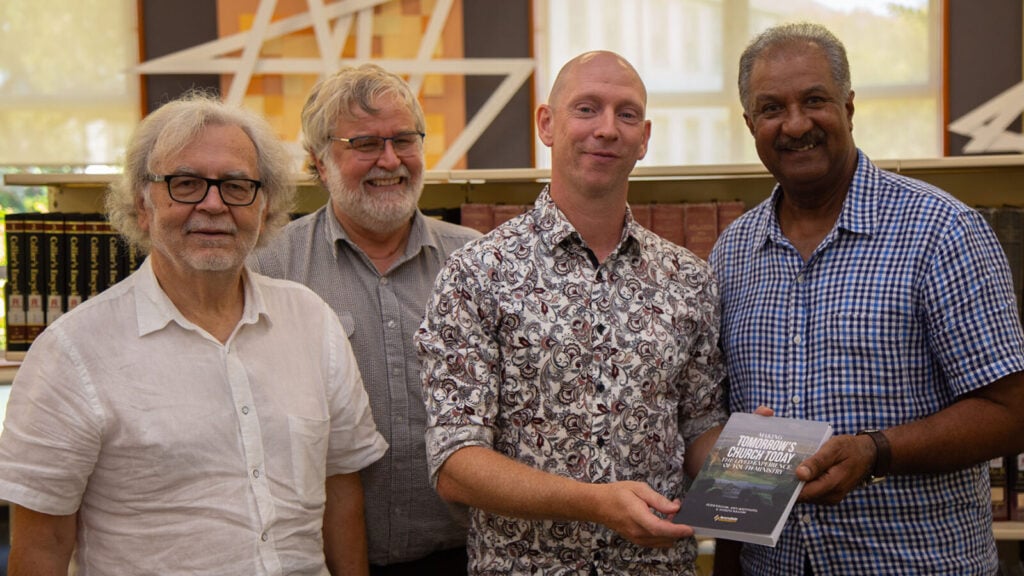
Despite personal, organizational, and demographic challenges, Seventh-day Adventist youth ministers are deeply committed to leading young people into a relationship with God, a new Avondale University study shows.
A compelling visionary influence fostered by their relationship with God helps the ministers create a “relational, non-judgemental space of unconditional acceptance and safety,” wrote the authors of Making Tomorrow’s Church Today: The Lived Experience of Youth Ministry (Avondale Academic Press, 2023). This intentional presence comes amid pressure to meet the needs of young people with [program-based] activities.
These Adventist ministers “see their ministry as different to others but vital to the future of the church,” lead researcher Peter Williams said, “and yet they don’t always feel it is valued or recognized,” even by the young people themselves. A “Supportive Workplace” ranks lowest on a Wellbeing and Support scale. The perception: youth ministry is “a part-of yet distinctly separate component” of church ministries.
The study notes how this lack of an all-inclusive approach, and a perception by some of wanting to achieve conformity through control, creates “a wall of partition.” While the more invariable form of other ministries maintains a sameness in programming, youth ministries demands change, flexibility, and innovative creativity. To cope, youth ministers say they need support that equips them for long-term relationship-focused ministry rather than a short-term transitional training field preparing them for a more extensive ministry. The mindset of “cutting your teeth before accepting a real role” has to change, Williams said.
Improving the relationship between pastors, elders, and church ministry leaders with youth ministers should reduce a generational gap that “exasperates the level and quality of alignment.”
Other perceived issues confronting youth ministers included expectations of “winning souls, stretching meagre resources” and balancing their personal and spiritual lives with the lives of those they serve. The challenge, the study notes, appears to be remaining steadfast in the relational heart-to-heart ministry while creating a space of unconditional safety and acceptance.
The prevalence and pervasiveness of technology did not make the original terms of reference, “but we heard about it,” Williams said. Youth ministers recognized the positive and negative implications of using social media but consistently stated that it cannot be avoided.
A seemingly perennial issue? Communicating the writings of church co-founder Ellen G. White in a language young people can understand and in a medium they enjoy using.
The study is based on survey and focus group responses from those attending the church’s Global Youth Leadership Congress 2018 in Kassel, Germany. Almost 70 percent of respondents were older than 30 years of age and most had spent “considerable” time in youth ministry as administrators or regional leaders or in a local church. Importantly, respondents represented every division of the worldwide church.
The lived experience methodology, which features the voices of the youth ministers, brings a personal perspective. “It’s a warts-and-all study,” Williams said. He recommends the book to all church leaders, not just those in youth ministry like himself — an Adventurers leader at his local church and a parent of three primary school-age children. “Being exposed — again, for some — to the power of youth ministry might take away some of the listlessness. We have the power to change lives but only a limited time to do so.”
Williams and co-authors Anthony Williams and John Skrzypaszek launched the book at a Christian Education Research Centre presentation on February 29.
The original version of this story was posted on Adventist Record.